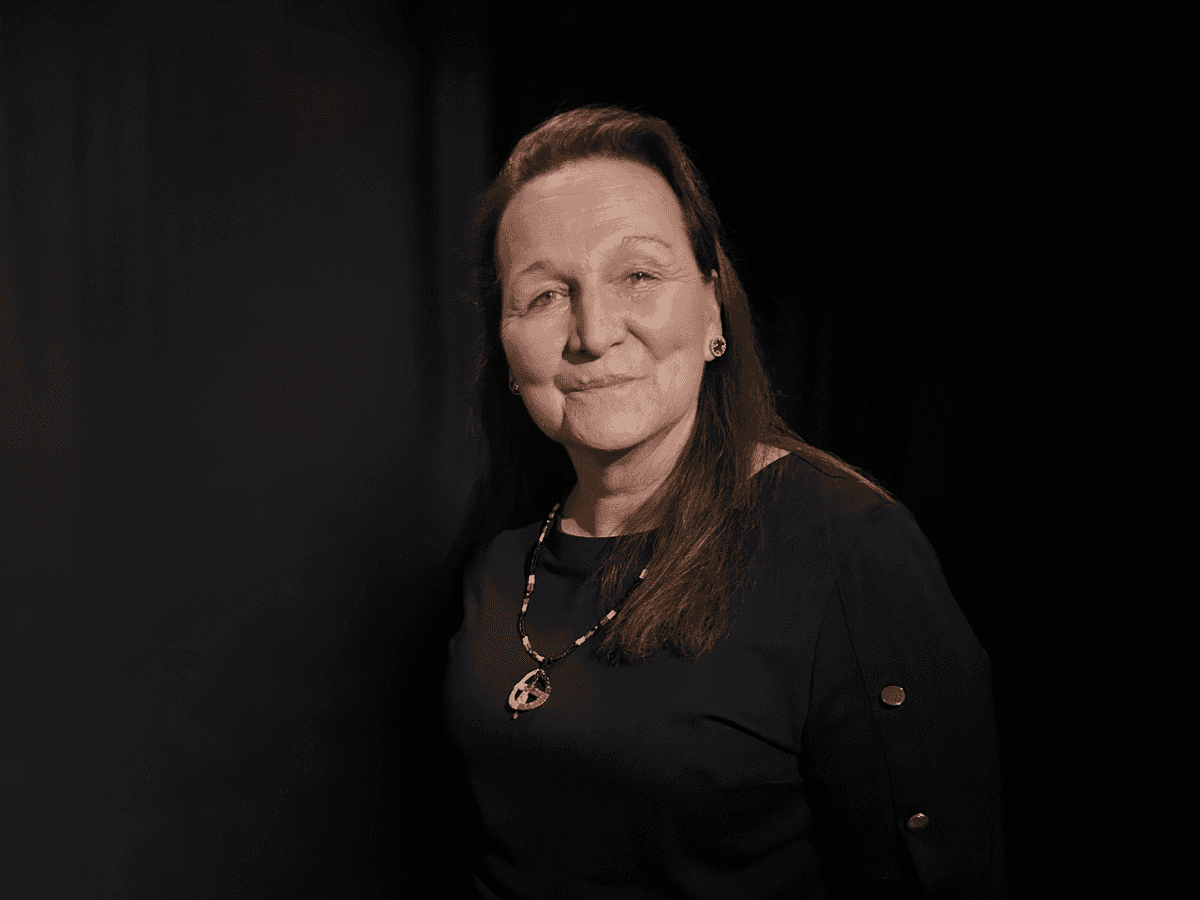Funding for tribal services threatened by ‘Big Beautiful Bill’
Carmen O’Leary fights to help Indigenous survivors of violence amid budget cuts

For nearly 20 years, Carmen O’Leary has been an advocate, resource and leader for Indigenous women. While many allies have come and gone over the years, O’Leary has remained dedicated to bettering the supports available to Indigenous survivors of domestic violence and sexual assault. She travels across the country, speaking to lawmakers in the nation’s capital about the need for funding and resources. One of her goals is to create a safe housing program for survivors of violence through funding from the Violence Against Women Act.
With few options available, many Indigenous people live in shared housing on reservations in remote locations, which can create unsafe living conditions for women.
“The combination of poverty and being a woman of color is very, very dangerous,” O’Leary said.
O’Leary is the director of Native Women’s Society, a tribal coalition of two dozen organizations all dedicated to one cause: the safety and well-being of Indigenous people. Coalition members work to provide shelter, legal support, transportation, crisis counseling and much more. She is also part of the VAWA task force.
But new legislation threatens the services coalition members provide. President Donald Trump’s new “Big Beautiful Bill” endangers government funding used to provide services and organization training.
O’Leary said the Office of Violence Against Women will be losing $208 million in fiscal year 2026 as a result of the bill. The office is responsible for providing funds to VAWA, which funds the tribal programs.
“Our women and children are going to hurt if this funding is cut even more than it already is,” Native Women’s Society of the Great Plains Chairwoman Sadie Young Bird said. “Abuse isn't going to stop because there isn't funding. How are we going to do our work? These are some of the most vulnerable people in the country, and we’re just going to cut services to them?”
O’Leary expects a reduction in services, but said it is too soon to know exactly what might happen.
New government regulations also prevent O’Leary from providing training to organizations about any issues relating to LGBTQ+ individuals, male victims and critical race theory. One of her modules covers the history of tribes, treaties, wars and boarding schools. The Trump administration considers this module as falling under critical race theory.
Even amid budget cuts, coalition members are confident in O’Leary’s abilities as a leader and advocate.
Young Bird has been working with O’Leary for the past 15 years.
“She is one of the aunties in the work. She has been here for a long time and makes sure that we keep fighting and know what we do and what our purpose is,” Young Bird said. “She’s the practical one and thinks of policies and how we can get help in a legal way and makes sure our voices are heard.”
The coalition hopes to combat dangers by offering as many resources as possible. Cheyenne River Sioux Tribe Family Violence Prevention Services, an organization founded in 2018, relies on Native Women’s Society to continue improvements in services.
“She kept this program alive,” Deanna Gomez, the CRST Family Violence Prevention Services director, said of O’Leary. O’Leary assists the organization with grants, outreach ideas and legal support.
“She also works with all these other tribal programs and brings us together so we can share and collaborate with each other,” Gomez said. “It's empowering to each of us board of directors.”
Despite anxiety about what may come, O’Leary remains proud of her organization and the work of the coalition.
“We’ve survived, we’ve grown, people really look to us with leadership, and that’s really an honor,” O’Leary said. “It shows that we have something to give.”
To submit a news tip regarding MMIP, contact Jolan Kruse at jolan@imfreedomalliance.org.
Jolan Kruse

This article is included in our Story Share & Care selection. We invite you to republish the content, with proper attribution to the author/s and to Buffalo's Fire. Please see our content sharing guidelines.


Help us keep the fire burning, make a donation to Buffalo’s Fire
For everyone who cares about transparency in Native affairs: We exist to illuminate tribal government. Our work bridges the gap left by tribal-controlled media and non-Native, extractive journalism, providing the insights necessary for truly informed decision-making and a better quality of life. Because the consequences of restricted press freedom affect our communities every day, our trauma-informed reporting is rooted in a deep, firsthand expertise.
Every gift helps keep the fire burning. A monthly contribution makes the biggest impact. Cancel anytime.
Respect The Fire
At Buffalo's Fire, we value constructive dialogue that builds an informed Indian Country. To keep this space healthy, moderators will remove:
- Personal attacks, harassment, or hate speech
- Spam, misinformation, or unsolicited promotion
- Off-topic rants and excessive shouting (All Caps)
Let’s keep the fire burning with respect.






